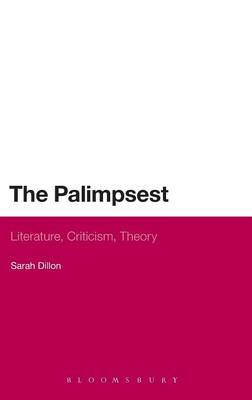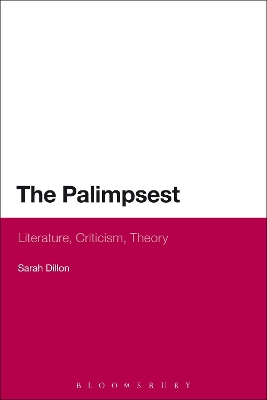Continuum Literary Studies
2 total works
Drawing together diverse literary, critical and theoretical texts in which the palimpsest has appeared since its inauguration by Thomas De Quincey in 1845, "Palimpsest: Literature, Criticism, Theory" provides the first ever genealogy of this metaphor. Sarah Dillon's original theorisation argues that the palimpsest has an involuted structure which illuminates and advances modern thought. While demonstrating how this structure refigures concepts such as history, subjectivity, temporality, metaphor, textuality and sexuality, Dillon returns repeatedly to the question of reading. This theorisation is interwoven with close readings of texts by D. H. Lawrence, Arthur Conan Doyle, Umberto Eco, Ian McEwan and H.D. Clearly written, and negotiating a range of critical theories and modern literary texts, it provides a reference point and critical tool for future employment of the concept of 'palimpsestuousness', and makes a significant contribution to the debate surrounding the relationship between theoretical and critical writing on literature.
Drawing together diverse literary, critical and theoretical texts in which the palimpsest has appeared since its inauguration by Thomas De Quincey in 1845, Palimpsest: Literature, Criticism, Theory provides the first ever genealogy of this metaphor. Sarah Dillon's original theorisation argues that the palimpsest has an involuted structure which illuminates and advances modern thought. While demonstrating how this structure refigures concepts such as history, subjectivity, temporality, metaphor, textuality and sexuality, Dillon returns repeatedly to the question of reading. This theorisation is interwoven with close readings of texts by D. H. Lawrence, Arthur Conan Doyle, Umberto Eco, Ian McEwan and H.D.
Clearly written, and negotiating a range of critical theories and modern literary texts, it provides a reference point and critical tool for future employment of the concept of 'palimpsestuousness', and makes a significant contribution to the debate surrounding the relationship between theoretical and critical writing on literature.
Clearly written, and negotiating a range of critical theories and modern literary texts, it provides a reference point and critical tool for future employment of the concept of 'palimpsestuousness', and makes a significant contribution to the debate surrounding the relationship between theoretical and critical writing on literature.

